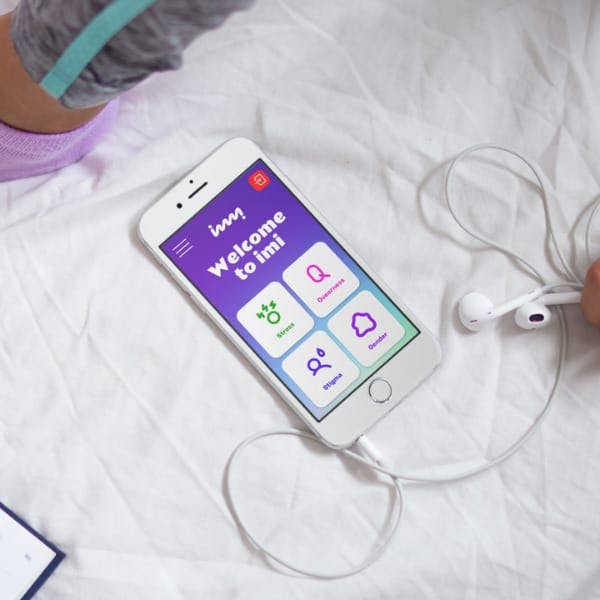An Identity Affirming Web App to Help Sexual and Gender Minority Youth Cope with Minority Stress: Pilot Randomized Control Trial
Jose Bauermeister; Seul Ki Choi; Emma Bruehlman-Senecal; Jesse Golinkoff; Arianna Taboada; Joshua Lavra; Lionel Ramazzini; Fred Dillon; Jana Haritatos
Abstract
Background: Efficacious mental health interventions for sexual and gender minority youth (SGMY) have had limited reach given their delivery as time-intensive, in-person sessions. Internet-based interventions may facilitate reach to SGMY, yet there is little research examining their efficacy.
Objective: We describe the results of a pilot randomized controlled trial of imi, a web app designed to improve mental health by supporting LGBTQ+ identity affirmation, coping self-efficacy, and coping skill practice.
Methods: SGMY(N=270) living in the US, ages 13 to 19 (Mean 16.5, SD 1.5 years) were recruited through Instagram ads. Nearly 78% of the sample identified as a racial and/or ethnic minority. Participants were randomized in a 1:1 fashion to the full imi intervention web app (treatment, n=135) or a resource page-only version of the imi site (control, n=135). imi covered four topical areas: gender identity, LGBTQ+ identity, stress and coping, and internalized homophobia and transphobia. Participants explored these areas by engaging with informational resources, interactive exercises, and peer stories at a self-guided pace. Both arms were assessed via web-based surveys at baseline and 4-week follow-up for intervention satisfaction, stress appraisals (i.e., challenge, threat, resource), coping skills (i.e., instrumental support, positive reframing, planning), and mental health symptoms, among other outcomes. Main ‘intent-to-treat’ analyses compared the arms at week 4, controlling for baseline values on each outcome.
Results: Survey retention was 90% at week 4. Participants in the treatment arm reported greater satisfaction with the intervention than participants in the control arm (t241=-2.98; p=.003). The treatment arm showed significantly greater improvement in challenge appraisals (i.e., belief in one’s coping abilities) than the control (Cohen d=0.26; p=.008). There were no differences between the arms for threat (d=0.10; p=.37) or resource (d=0.15; p=.14) appraisals. The treatment arm showed greater increases in coping skills than the control arm (instrumental support: d=0.24, p=.005; positive reframing: d=0.27, p=.02; planning: d=0.26, p=.02). Mental health symptoms improved across both the treatment and control arms; however, there were no differences between arms. Within the treatment arm, higher engagement with imi (>=5 sessions, >10 minutes, or >10 pages) predicted greater improvement in stress appraisals (all ps<.05).
Conclusions: Results provide initial evidence that asynchronous psychosocial interventions delivered via a web app to SGMY can support their ability to cope with minority stress. Further research is needed to examine the long-term effects of imi. Clinical Trial: Clinical Trials.gov NCT05061966; https://clinicaltrials.gov/ct2/show/NCT05061966
Read the study
Read the full study in the Journal of Medical Internet Research (JMIR) or read a summary prepared by our research team.
Gold Anthem Award
In 2023, the Eidos LGBTQ+ Health Initiative at the University of Pennsylvania was recognized by the Anthem Awards in the Health category for Research Projects or Publications / Awareness & Media.




